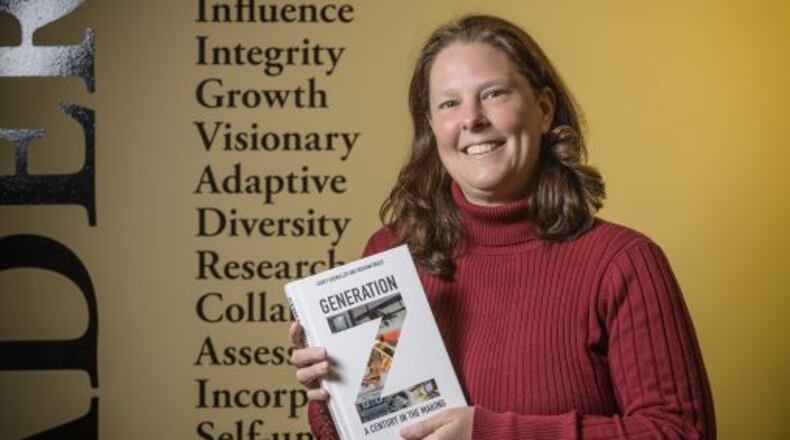That does not surprise a Wright State University education and leadership studies professor who has been plumbing the depths of Generation Z, the generation born between 1995 and 2010 — a group who is becoming increasingly important as they graduate from high school and even college.
The oldest members of that generation will celebrate their 25th birthday this year.
“It’s the turnout we’re concerned about,” said Dr. Corey Seemiller, talking about her latest findings on the group’s voting choices.
Gen. Z voters want to see “authentic” candidates who reflect their ethics and values, she said.
“That they have a candidate who is ethical — that is huge for them,” Seemiller said in an interview Wednesday, the day after Super Tuesday voting in 14 states and one territory. “Also, one who is caring. But they also said ‘realistic.’ They want that person to have some plans.”
Seemiller, an associate professor of leadership studies in education and organizations at Wright State, has written a book on Gen Z, with Meghan Grace, then a graduate student at Vanderbilt University. Released last year, the book is “Generation Z: A Century in the Making.”
According to this week’s NBC exit poll, only 13 percent of Super Tuesday voters were aged 18 to 29. That compares to those aged 30 to 44, who made up 23 percent of voters on Tuesday, according to the poll, and those aged 45 to 64, who made up 35 percent. Those 65 and older comprised 29 percent of voters Tuesday.
None of that surprises Seemiller. She said Gen Z members tend to be liberal but often reject familiar ideological labels and support positions that cross party lines — simultaneously supporting gun rights and abortion rights, for example.
But getting the youngest voters to the polls has long proven to be challenge. Across the generations, 18-year-olds have tended not be as reliable in voting as their older counterparts, she acknowledged.
“A lot of them said they want to stay home (from voting) because they don’t believe their vote counts,” Seemiller said. “They said between the Electoral College and gerrymandering, especially if they live in an area where they’re a political minority … they say, ‘What’s the point of even trying?’”
About the Author

